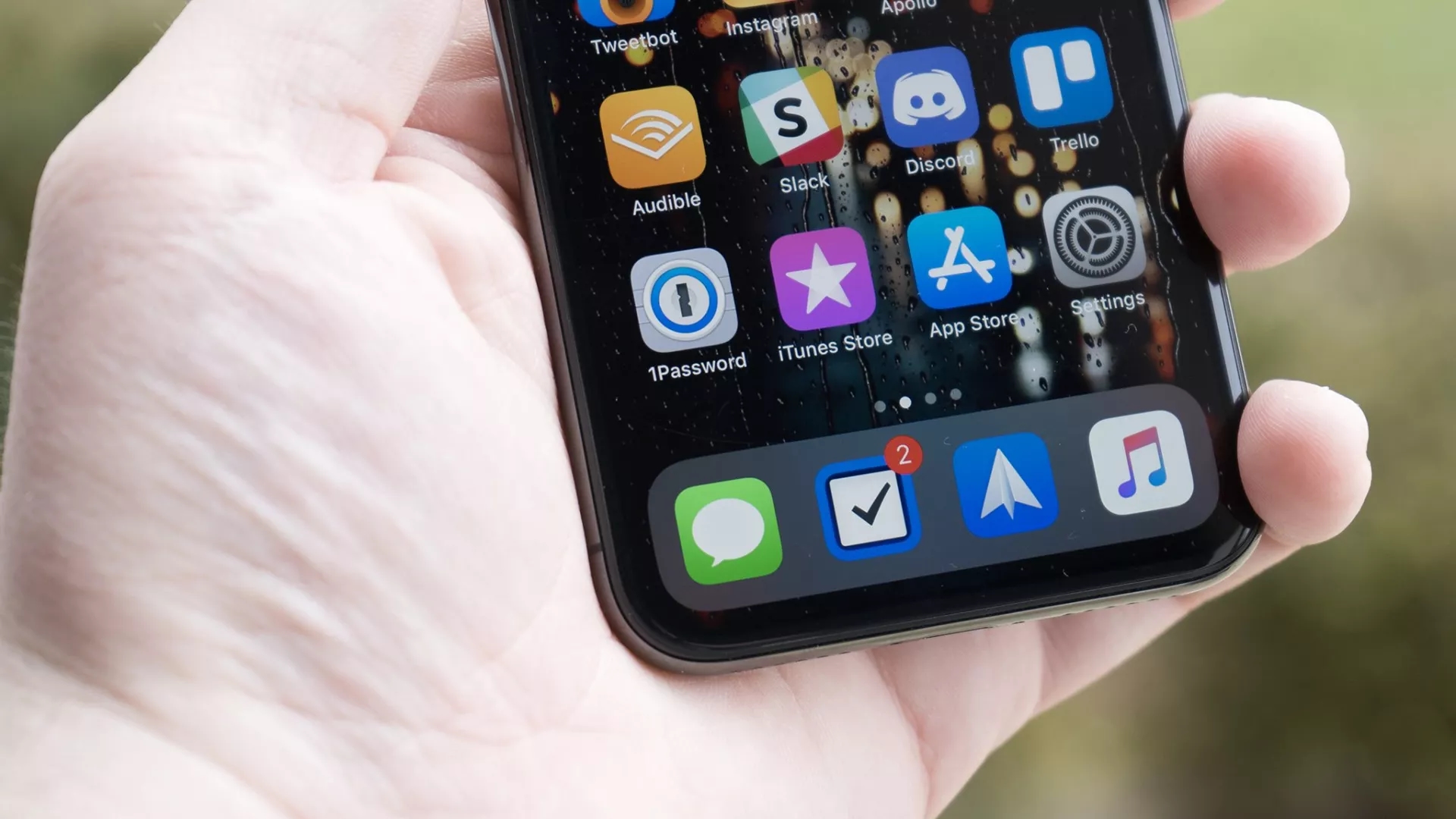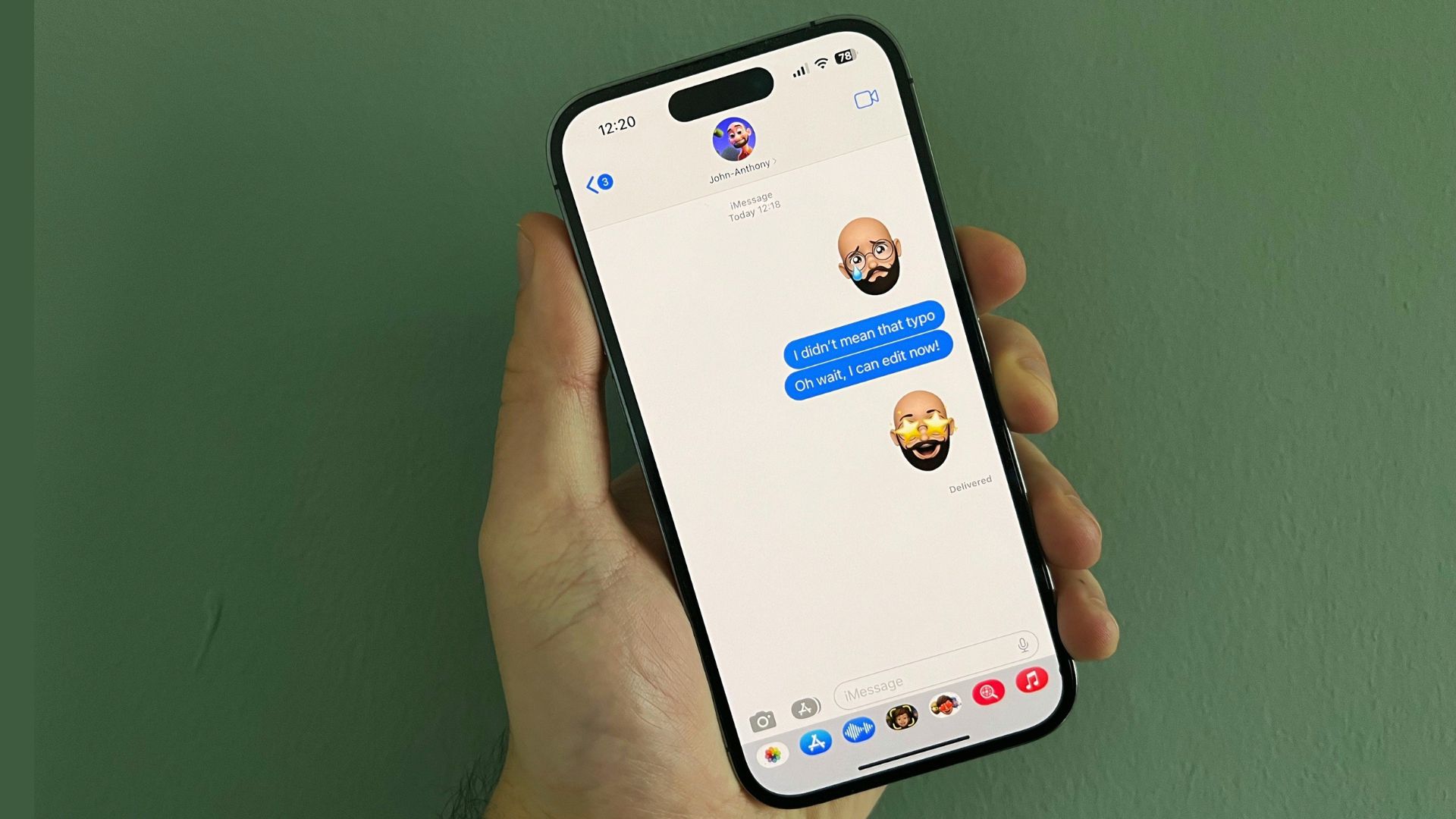The iPhone getting RCS seems huge, but it won't fix the green bubble problem and that might be the point
Green bubbles are here to stay no matter what.

iMore offers spot-on advice and guidance from our team of experts, with decades of Apple device experience to lean on. Learn more with iMore!
You are now subscribed
Your newsletter sign-up was successful
When you think of all of the features that keep iPhone owners owning iPhones, there are a few aspects of the Apple ecosystem that spring to mind. There's the App Store and the (at least perceived) security that it offers. Apple Pay is another thing we iPhone users love, too. And those cameras are great, sure. But Google's Pixel phones have great cameras and are the closest thing to an iPhone you're likely to find in the Android world. What's something that iPhones have that no other phones do?
I'm of course talking about iMessage, the instant messaging service that is only available to owners of the iPhone, plus other Apple hardware like the iPad, Apple Watch, and Mac. No matter what you do you can't get iMessage on Android, despite how much Nothing might try to claim you can.
And that's the rub. With iMessage such a big deal for iPhone owners, it makes switching less likely. But worse, it means that whenever an iPhone owner tries to send a message to the owner of an Android phone via the Messages app that message goes via SMS, a relic of the 1990s. The first SMS was sent in 1992, long before some of the people reading this were born. The fact that an iPhone 15 has to use SMS in 2023 is a sorry state of affairs. But not for long, with Apple confirming that it will bring RCS to the iPhone in 2024. Think of RCS as an upgraded SMS/MMS situation and you'll have the picture. It brings with it many of the same qualities as iMessage, but importantly, it's cross-platform. That fixes the problem of photos and videos sent between iOS and Android being compressed to the lowest possible quality, but it doesn't fix another big problem — it doesn't fix the green bubbles. And that might just be the biggest problem here.
RCS is a start, but probably not enough
For its part, Google has been campaigning for Apple to support RCS on iPhones for years now. Google is well aware of the pull that iMessage has among users, and it also knows that sending messages between iPhones and Android phones is a problem. So it is perhaps no surprise that it's pretty pleased that RCS is on its way to iPhones everywhere.
“Everyone deserves to communicate with each other in ways that are modern and secure, no matter what phone they have," Google told iMore. "That’s why we have worked closely with the mobile industry to accelerate the adoption of RCS, and we’re happy to see Apple take their first step today by coming on board to embrace RCS. We welcome Apple’s participation in our ongoing work with GSMA to evolve RCS and make messaging more equitable and secure, and look forward to working with them to implement this on iOS in a way that works well for everyone.”
But the warm and fuzzy feeling might be tempered somewhat by the news that Apple intends to make sure that people are well aware of which type of message they're sending. That is, iMessages will still live in blue bubbles and RCS messages will borrow the green bubbles previously reserved for SMS. We still don't know how things will be handled functionally, and we probably won't until an as-yet undefined point in 2024. WWDC in June seems the most likely date for that and if so, we won't actually enjoy RCS itself until iOS 18 lands in September of the same year. But even when it's here, it might not fix the real problem — those bubbles.
Green bubbles = bad

Now it's important to remember that I live in the UK and, thankfully, most of my friends and family have iPhones. But for those who do insist on using something else we just use third-party apps like WhatsApp instead. It's fine, if not ideal.
iMore offers spot-on advice and guidance from our team of experts, with decades of Apple device experience to lean on. Learn more with iMore!
But I gather that things are very different in the United States, where getting people to use any messaging app other than the built-in Messages is a bit of a problem. In fact, I'm told that iPhone owners — particularly kids and young adults — seem to look down on those green bubbles for reasons I can't quite fathom. And not just look down on them, either. I'm told that kids are bullying their green bubble friends over such things, which is madness.
And the sad fact of the matter is that no amount of RCS support is going to fix that. Sure, kids might be able to send their memes in HD and that's cool, but they won't care whether they're sending them over SMS or RCS. All they'll see is that green bubble and it'll be like nothing has changed.
It's important to remember that as good as the news of impending RCS support is great, this isn't what some people seem to believe. Apple is not bringing iMessage to Android. It's bringing Android's answer to iMessage to the iPhone, and that's a key differentiation to make. Yes, iPhones and Android phones can send and receive messages in a way more befitting the year 2023. But the only real fix for any of the bubble problems is to make iMessage interoperable with other platforms. And that might not be as crazy of an idea as you might think.
The EC to the rescue?
Fresh from forcing Apple to adopt USB-C with the iPhone 15 and iPhone 15 Pro, the European Commission (EC) has its sights on iMessage. Google has, understandably, already put its weight behind the idea that Apple should be forced to make iMessage interoperable with Android.
I firmly believe that Apple's impending adoption of RCS is solely to try and get ahead of any changes that the EC might force upon iMessage, but is it enough? I'm not convinced that it is, but it isn't down to me. The real question is whether The EC will be convinced and, so far at least, it hasn't been keen to let Apple dictate things. RCS support doesn't change the fact that iMessage is platform-specific, and that might just be enough to get the Europeans' attention regardless of what resolution green bubble memes are sent in in the future.

Oliver Haslam has written about Apple and the wider technology business for more than a decade with bylines on How-To Geek, PC Mag, iDownloadBlog, and many more. He has also been published in print for Macworld, including cover stories. At iMore, Oliver is involved in daily news coverage and, not being short of opinions, has been known to 'explain' those thoughts in more detail, too.
Having grown up using PCs and spending far too much money on graphics card and flashy RAM, Oliver switched to the Mac with a G5 iMac and hasn't looked back. Since then he's seen the growth of the smartphone world, backed by iPhone, and new product categories come and go. Current expertise includes iOS, macOS, streaming services, and pretty much anything that has a battery or plugs into a wall. Oliver also covers mobile gaming for iMore, with Apple Arcade a particular focus. He's been gaming since the Atari 2600 days and still struggles to comprehend the fact he can play console quality titles on his pocket computer.
